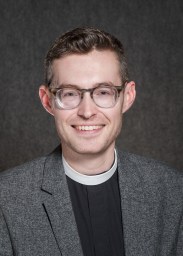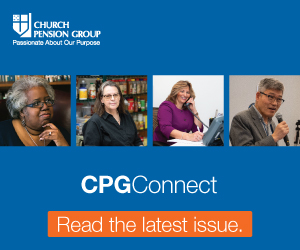
By Nathan LeRud
I was a college freshman: miserably homesick, on the other side of the country from my family and friends, my ivy-clad East Coast collegiate fantasy gone horribly wrong. I was in the process of coming out, trying to figure out who I was and what mattered to me. I felt like I was failing – at school, life, making friends, and being the good Christian kid I thought I was supposed to be. That year, by the time spring first began to break through the snow, I was in a pretty dark place.
I knew about Good Friday from growing up in the Evangelical Church. Our church often performed a big passion musical over the Easter weekend, and we usually had a performance on Friday night. But there was no show this year, all my friends were back home in Oregon. Nobody in Annapolis, Md., was performing a big evangelical Easter cantata, so I wandered down the street to the Episcopal Church I’d been attending off and on to see what Good Friday looked like from their perspective.
I’ve never looked back. The service I experienced that evening changed my life. I don’t remember very much about the service itself – I was still new to the rhythms and rituals of the Episcopal Church, so I assume most of what I experienced that evening was unfamiliar and foreign. I’m sure we sang some of the great Holy Week hymns – probably a Bach chorale or two that I knew from high school choir, maybe “Were You There When They Crucified My Lord?” which I sang as a child. But mostly that Good Friday service would have been a mystery to me.
I don’t remember what happened, but I remember how I felt afterwards. I remember wandering the empty streets of the city after the service let out, unsure what had just happened to me but certain I had touched down into some part of me that understood what this service—this week, this story—was trying to say. I knew I had been struggling for weeks with a kind of darkness, a kind of death. That Good Friday service gave me words and space to express and experience everything I was carrying around with me. And I knew that something in me was being healed – slowly, haltingly, but surely. I knew myself to be loved, no matter how abandoned and alone I might feel.
There’s an intensity to the services of Holy Week. They were originally conceived as a kind of three-act play: one service spread over three nights. That’s how these holy days were observed in the earliest days of Christian worship; our forebears called the services of Holy Week the Triduum, or the Great Three Days.
We begin on Maundy Thursday as Jesus’ beloved ones: we reenact the foot washing he commanded his disciples to continue (“Maundy” means mandate): an act of incredible intimacy and service. We witness our altars stripped bare, candles and hangings removed, our sacred spaces austere in preparation for the solemnity to follow.
The next day, Good Friday, we watch from the foot of the cross as the one whom we love is handed over as a common criminal and executed by the government for crimes he didn’t commit. We kneel before the cross, lighting candles and praying for those who are condemned and persecuted in our world.
We gather again on Saturday night to kindle the new fire and wait in vigil as we turn back to the beginning and trace God’s love for creation in the “campfire stories” of our tradition. In some ways, this service—the Great Vigil—is at the core of our faith. There is fire and water, ringing bells, the sound of crashing organs and joyful voices raised in song to proclaim the resurrection, and we celebrate the first eucharist of Easter as it was meant to be celebrated: in the dead of night, surrounded by those whom we love and those we barely know, a single community of resurrection crying, “Alleluia!”
The services of Holy Week saved my life, almost 25 years ago. They’re the services I keep coming back to, year by year, always on the lookout for something new in familiar words and music. Whatever this last year has meant for you, whatever you’re struggling with, whatever joys and sorrows have come into your life, there is room for all of it in these holy days: room enough for your deepest pain, room for your greatest joy.
May the Risen One come among us again this year as we tell the old, old story in a new way and discover again who we are, and who we are being called to become.
The Very Rev. Nathan LeRud is dean of Trinity Cathedral, Portland, Ore.


